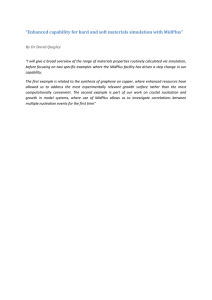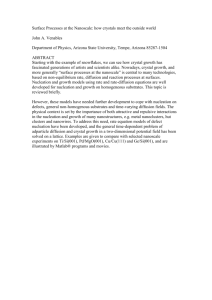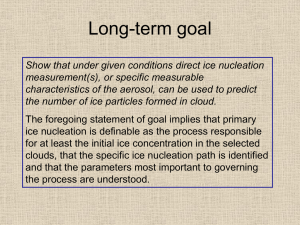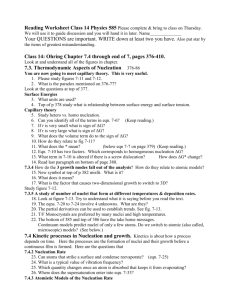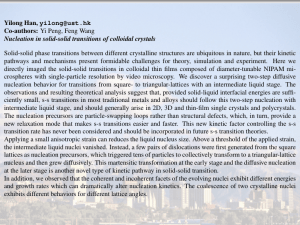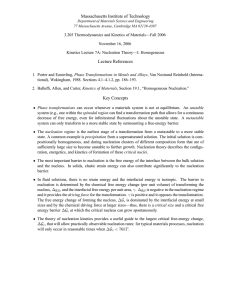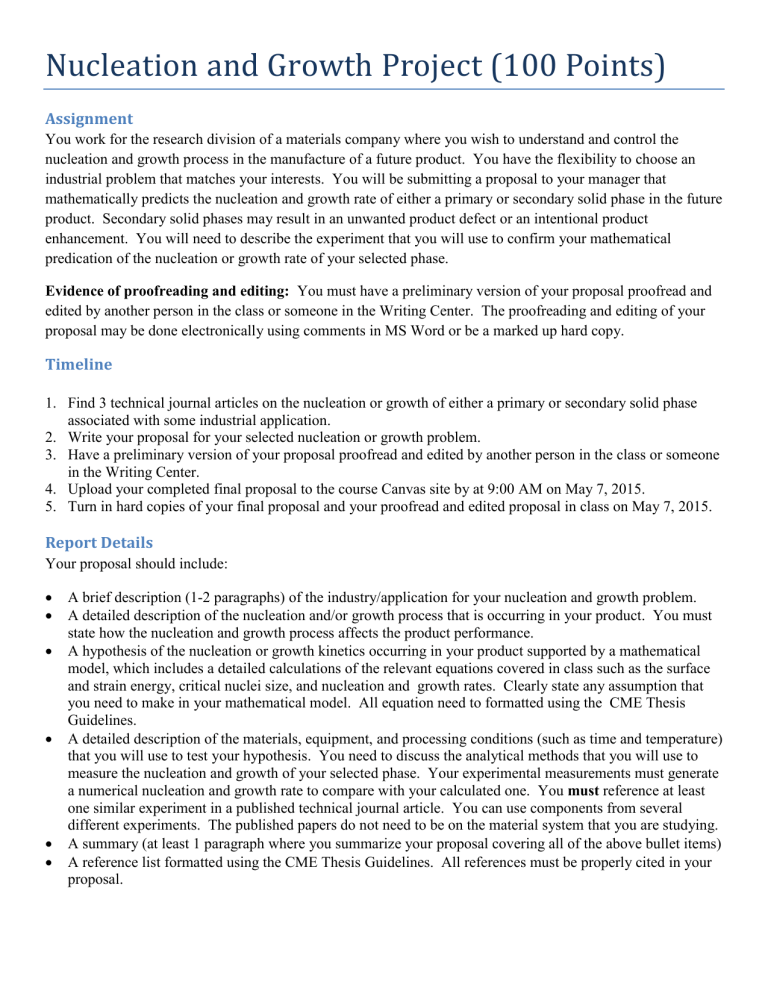
Nucleation and Growth Project (100 Points) Assignment You work for the research division of a materials company where you wish to understand and control the nucleation and growth process in the manufacture of a future product. You have the flexibility to choose an industrial problem that matches your interests. You will be submitting a proposal to your manager that mathematically predicts the nucleation and growth rate of either a primary or secondary solid phase in the future product. Secondary solid phases may result in an unwanted product defect or an intentional product enhancement. You will need to describe the experiment that you will use to confirm your mathematical predication of the nucleation or growth rate of your selected phase. Evidence of proofreading and editing: You must have a preliminary version of your proposal proofread and edited by another person in the class or someone in the Writing Center. The proofreading and editing of your proposal may be done electronically using comments in MS Word or be a marked up hard copy. Timeline 1. Find 3 technical journal articles on the nucleation or growth of either a primary or secondary solid phase associated with some industrial application. 2. Write your proposal for your selected nucleation or growth problem. 3. Have a preliminary version of your proposal proofread and edited by another person in the class or someone in the Writing Center. 4. Upload your completed final proposal to the course Canvas site by at 9:00 AM on May 7, 2015. 5. Turn in hard copies of your final proposal and your proofread and edited proposal in class on May 7, 2015. Report Details Your proposal should include: A brief description (1-2 paragraphs) of the industry/application for your nucleation and growth problem. A detailed description of the nucleation and/or growth process that is occurring in your product. You must state how the nucleation and growth process affects the product performance. A hypothesis of the nucleation or growth kinetics occurring in your product supported by a mathematical model, which includes a detailed calculations of the relevant equations covered in class such as the surface and strain energy, critical nuclei size, and nucleation and growth rates. Clearly state any assumption that you need to make in your mathematical model. All equation need to formatted using the CME Thesis Guidelines. A detailed description of the materials, equipment, and processing conditions (such as time and temperature) that you will use to test your hypothesis. You need to discuss the analytical methods that you will use to measure the nucleation and growth of your selected phase. Your experimental measurements must generate a numerical nucleation and growth rate to compare with your calculated one. You must reference at least one similar experiment in a published technical journal article. You can use components from several different experiments. The published papers do not need to be on the material system that you are studying. A summary (at least 1 paragraph where you summarize your proposal covering all of the above bullet items) A reference list formatted using the CME Thesis Guidelines. All references must be properly cited in your proposal.
